On December 17, at Duy Tan University, the Ministry of Education and Training (MOET) held a Seminar to evaluate the implementation of the Law on Higher Education for the period 2019-2023. Deputy Minister Hoang Minh Son chaired the seminar.
Law on Higher Education No. 08/2012/QH13 was passed by the National Assembly on June 18, 2012, effective from January 1, 2013, amended and supplemented by Law No. 34/2018/QH14 dated November 19, 2018 of the National Assembly amending and supplementing a number of articles of the Law on Higher Education (Law No. 34), effective from July 1, 2019.
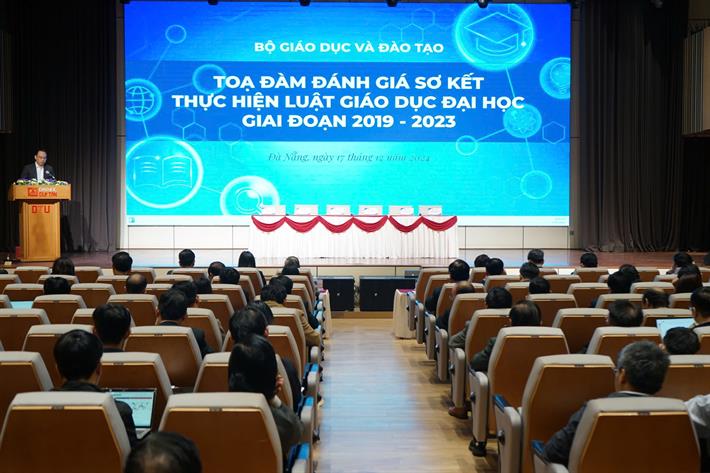 |
Discussion scene
Speaking at the seminar, Deputy Minister Hoang Minh Son said that in more than 5 years of implementing the Law on Higher Education, although the number of universities has not changed significantly , the scale and quality of training have increased significantly, especially the university management capacity, competitiveness and autonomy of higher education institutions have been improved.
According to the Deputy Minister, in the face of strong socio -economic changes in the country and the requirements of international integration, some provisions of the Law on Higher Education have revealed certain inadequacies compared to the practical development requirements of Vietnamese universities. Therefore, the Government Standing Committee agreed to assign the Ministry of Education and Training to preside over and coordinate with relevant ministries and branches to continue researching, reviewing and summarizing 5 years of implementing the Law on amending and supplementing a number of articles of the Law on Higher Education and related legal documents, and report to the Government in 2024.
The preliminary report on the implementation of the Law on Higher Education for the period 2019-2024 by the Department of Higher Education (Ministry of Education and Training) said: After 5 years of implementation, the Law on Higher Education has basically met the practical requirements of developing higher education, enhanced the effectiveness and efficiency in state management of higher education, enhanced the autonomy of higher education institutions, ensured international integration, better met the needs of training human resources of the socialist-oriented market economy, contributed to the development of education and training, improved the intellectual level and quality of human resources, trained talents for the country and contributed to the socio-economic development of the country.
Specifically, the policy of promoting university autonomy has created consensus and unified implementation throughout the political system. From documents and resolutions on the Party's policies and guidelines to legal documents and resolutions on socio-economic development of the National Assembly as well as the system of directive and executive documents of the Government, ministries, branches and localities all emphasize the requirement of promoting autonomy, having breakthrough policies, improving the quality of university education, contributing to the development of human resources, especially high-quality human resources to meet the needs of building and defending the Fatherland in the context of innovation and integration.
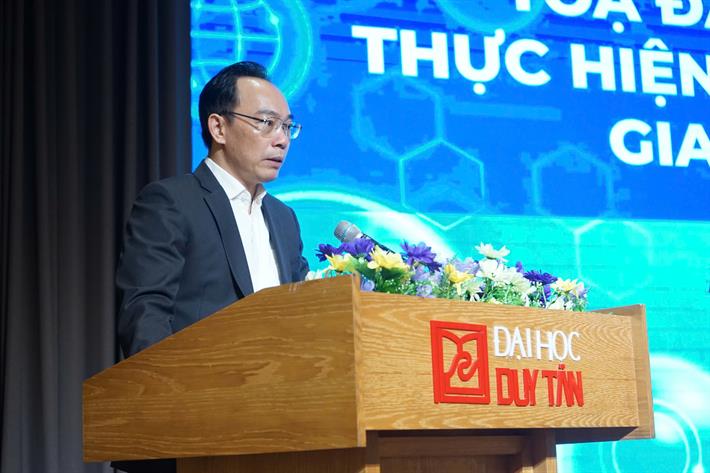 |
Deputy Minister Hoang Minh Son speaks at the seminar
The legal framework for university autonomy continues to be improved. Based on the provisions of the Law, the Ministry of Education and Training and relevant ministries have promptly and actively developed plans, directed the implementation, and issued many important regulations and policies to contribute to realizing the policy on promoting university autonomy, especially in the areas of autonomy in expertise, organization, personnel, and finance. State management of the higher education system has also undergone many changes and transformations in accordance with the conditions of university autonomy. State management agencies have issued many framework regulations and standards as effective management tools, minimizing the "ask-give" mechanism in higher education management.
Implementing the autonomy mechanism, university management and administration have had positive changes. The autonomy mechanism has created conditions for higher education institutions to promote democracy, be more proactive, flexible and creative in building and organizing training activities, scientific research, serving the community effectively, meeting the increasing learning needs of the people and improving the qualifications and professional skills of workers.
The attraction and mobilization of investment resources for higher education has initially diversified; the efficiency of resource use has improved and been gradually enhanced. The financial mechanism for higher education has been gradually adjusted and innovated. Public higher education institutions assigned to implement autonomy have the right to decide on training service prices, ensure cost compensation and have reasonable accumulation as well as self-decide on expenditures and expenditure levels appropriate to the level and capacity of implementing autonomy according to regulations. Thanks to mobilizing more abundant funding sources, autonomous higher education institutions have more resources to reinvest, strengthen facilities, equipment and improve quality assurance conditions, increase income levels for staff and lecturers, thereby helping the school attract and recruit people with capacity and qualifications for work.
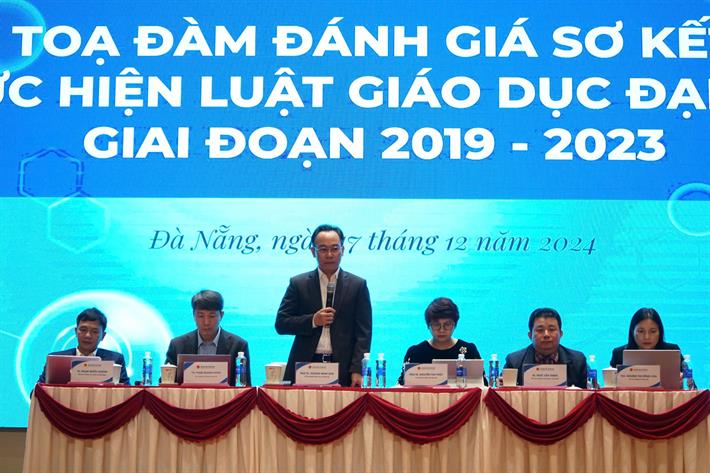 |
Deputy Minister Hoang Minh Son and leaders of units under the Ministry of Education and Training chaired the discussion at the seminar.
The quality of higher education has been gradually improved. The proportion of staff and lecturers with academic titles and degrees has increased significantly; the number of scientific works published domestically and internationally has increased sharply. A number of higher education institutions have made remarkable progress in terms of expertise and academics, contributing to gradually affirming the position and prestige of Vietnamese higher education in the international arena.
Regarding the purpose of the review and assessment of the implementation of the Law on Higher Education for the 2019-2024 period, a representative of the Department of Higher Education said: It is to objectively and comprehensively assess the situation and results of the implementation of the provisions of the Law on Higher Education, clarify the difficulties, obstacles, inadequacies, conflicts, overlaps, and legal gaps in the legal system on higher education in order to propose solutions to improve the law and improve the effectiveness of the implementation of the Law on Higher Education in the coming time.
Study the new tasks assigned by the Party and the Government in resolutions, directives, and Government projects related to the development of higher education in the new period to propose contents that need to be institutionalized in the Law on Higher Education. Study the regional and global context, the impact of scientific and technological development on future human resource training to propose contents that need to be supplemented in the provisions of the Law on Higher Education.
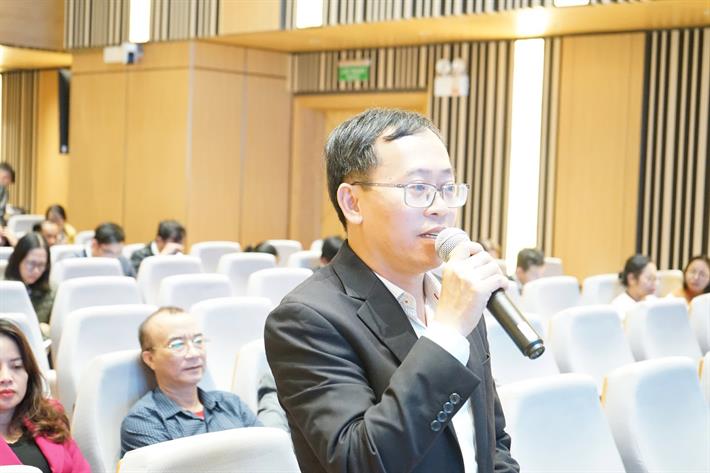 |
Representatives of higher education institutions exchanged at the seminar
At the seminar, delegates highly agreed with the draft assessment of the implementation of the Law on Higher Education for the period 2019-2023. In the discussion, the opinions of delegates from higher education institutions focused mainly on a number of issues such as: Regulations on the system of higher education institutions, regulations on the organization of higher education institutions, regulations on training activities, regulations on quality assurance and quality assessment of higher education, regulations on finance and assets of higher education institutions, organizational structure and activities of the University Council, etc.
Deputy Minister Hoang Minh Son said that the process of evaluating and summarizing the implementation of the Law on Higher Education for the period 2019-2023 has two goals: analyzing the difficulties, advantages, positive aspects, and existing limitations in order to propose amendments to the Law and develop new laws. This is also an intellectual contribution and sharing of difficulties from higher education institutions across the country. There are issues that cannot be resolved immediately, but we must work together to clarify what is still stuck in the Law, in guiding documents or in the implementation stage, and share experiences in the implementation process...
“These opinions have been recorded by the Ministry of Education and Training and added to the report submitted to the Government to propose amendments or replacements to the law to ensure consistency with other laws such as the Law on Education, the Law on Teachers, the Law on Science and Technology, thereby creating a concise and clear legal corridor for effective implementation as desired,” Deputy Minister Hoang Minh Son emphasized.
Source: https://moet.gov.vn/tintuc/Pages/tin-tong-hop.aspx?ItemID=10128


![[Photo] General Secretary To Lam meets voters in Hanoi city](https://vphoto.vietnam.vn/thumb/1200x675/vietnam/resource/IMAGE/2025/9/23/d3d496df306d42528b1efa01c19b9c1f)
![[Photo] Editor-in-Chief of Nhan Dan Newspaper Le Quoc Minh received the working delegation of Pasaxon Newspaper](https://vphoto.vietnam.vn/thumb/1200x675/vietnam/resource/IMAGE/2025/9/23/da79369d8d2849318c3fe8e792f4ce16)

![[Photo] Prime Minister Pham Minh Chinh chairs the 14th meeting of the Steering Committee on IUU](https://vphoto.vietnam.vn/thumb/1200x675/vietnam/resource/IMAGE/2025/9/23/a5244e94b6dd49b3b52bbb92201c6986)

![[Photo] The 1st Congress of Party Delegates of Central Party Agencies, term 2025-2030, held a preparatory session.](https://vphoto.vietnam.vn/thumb/1200x675/vietnam/resource/IMAGE/2025/9/23/e3a8d2fea79943178d836016d81b4981)
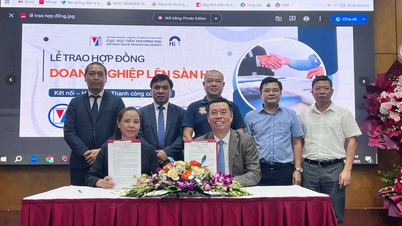






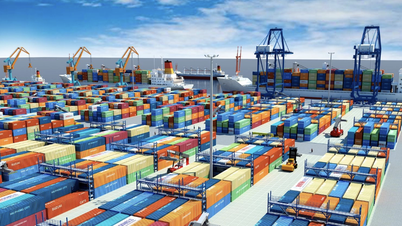





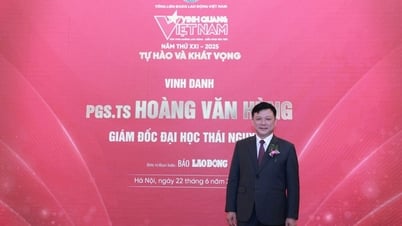
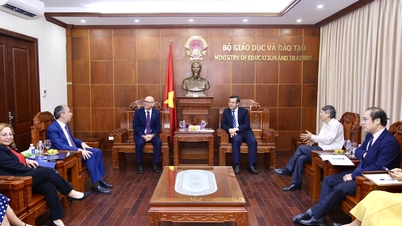
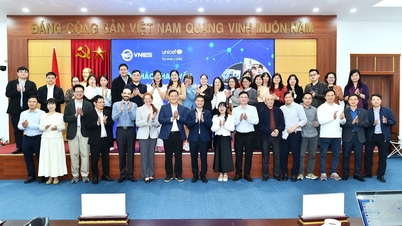
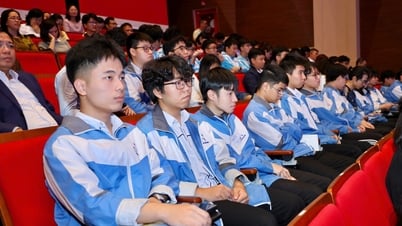































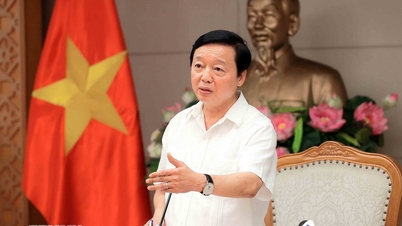

































Comment (0)